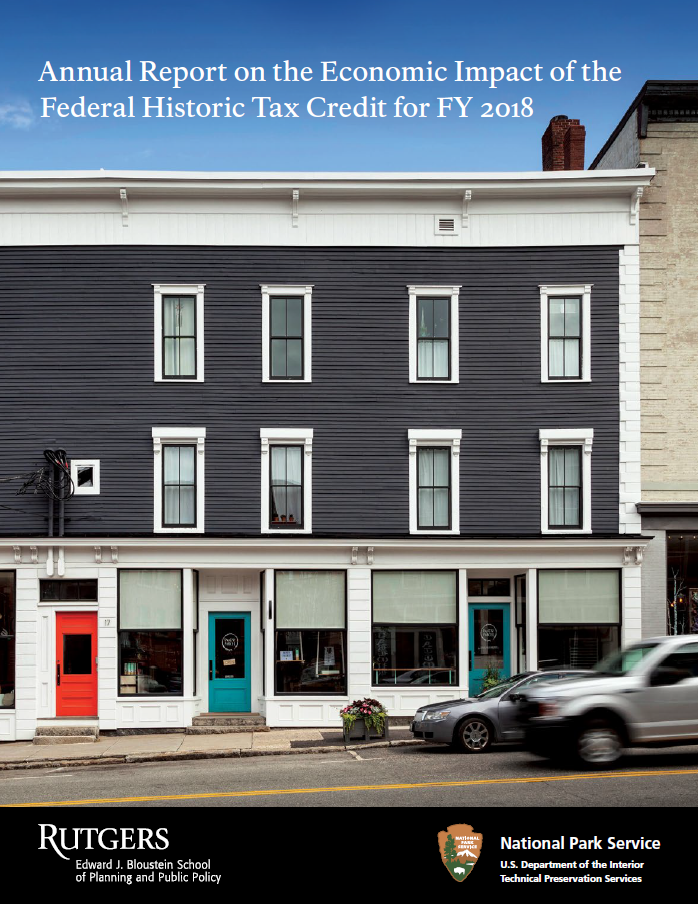The Federal Historic Tax Credit (HTC) is a Federal income tax credit that promotes the rehabilitation of income-producing historic properties. This study examines the economic impacts of the HTC (a 20-percent credit since 1986) by analyzing the economic consequences of the project it supports. This analyses focuses on the economic effects of these projects during construction, quantifying the total economic impacts (i.e., direct as well as multiplier, or secondary, economic consequences) for the Fiscal Year 2018, beginning October 1, 2017, and ending September 30, 2018, and for the period since the program’s inception (beginning in FY 1978, with the certification of the first completed rehabilitation project under the program). The study utilizes the Preservation Economic Impact Model (PEIM), a comprehensive economic model development by Rutgers University Center for Urban Policy Research for the National Park Service.
The current analysis applies the PEIM to both cumulative (FY 1978 through FY 2018) HTC-related historic rehabilitation investment (about $162.0 billion in inflation-adjusted 2018 dollars) and single-year (FY 2018) HTC-related rehabilitation investment (about $7.7 billion). It considers the effects of the cumulative $162.0 billion rehabilitation investment as if it applied to one year (2018), rather than backdating the PEIM for each of the 41 years in the study period. It also considers the full rehabilitation investment associated with the HTC (e.g., $7.7 billion in FY 2018), and not the somewhat lower amount reported by the National Park Service based on estimated qualified rehabilitation costs indicated by property owners requesting certification of rehabilitation for purposes of the tax credit (e.g., $6.9 billion in FY 2018).1
